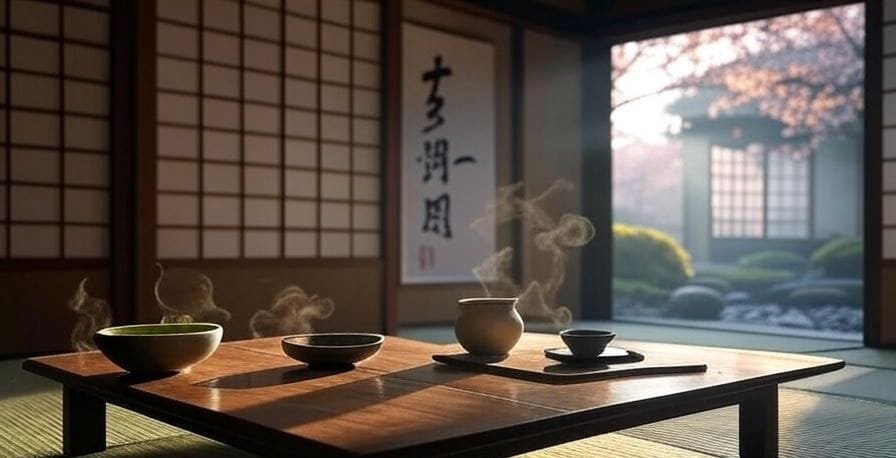Tokyo, September 9, 2025 – In a world increasingly dominated by digital distractions and relentless schedules, Japan’s timeless philosophy of “ichigo ichie” is experiencing a remarkable resurgence, offering a antidote to modern life’s haste. Pronounced “ee-chee-go ee-chee-eh,” this four-character idiom, which translates roughly to “one lifetime, one meeting,” urges individuals to cherish every irreplaceable moment as if it were their last. Rooted in Zen Buddhism and the intricate rituals of the traditional tea ceremony, ichigo ichie is more than a proverb—it’s a mindset that’s inspiring wellness trends, corporate strategies, and cultural exchanges worldwide.
The concept traces its origins to the 16th century, when renowned tea master Sen no Rikyu emphasized the uniqueness of each gathering. During tea ceremonies, participants are encouraged to savor the aroma of matcha, the texture of ceramics, and the subtle sounds of preparation, fully immersing themselves in the present. Rikyu’s teachings, as documented in historical texts, highlighted that even repeated encounters with the same people under identical circumstances can never truly recur, making every interaction a singular treasure. This idea, often inscribed on scrolls in tea rooms, has permeated Japanese arts, from calligraphy to cuisine, reminding practitioners that transience is the essence of beauty.
In contemporary Japan, ichigo ichie continues to influence daily life and business. Companies like Ichigo Inc., a Tokyo-based sustainable infrastructure firm, have adopted the phrase as their corporate name, symbolizing a commitment to mindful development in real estate and renewable energy. The company’s focus on renovating existing buildings rather than demolishing them aligns with the philosophy’s emphasis on valuing what exists now, avoiding wasteful pursuits of the new. Similarly, restaurants such as Ichigo Ichie in Singapore draw on the proverb to create dining experiences where seasonal ingredients and guest interactions are treated as once-in-a-lifetime events, blending Edo-period codes of reciprocity with modern fine dining.
The philosophy’s appeal has extended far beyond Japan’s borders, fueled by bestselling books and social media movements. Authors Héctor García and Francesc Miralles, known for their work on “ikigai,” released “The Book of Ichigo Ichie” in recent years, outlining ten principles for applying the concept to everyday happiness. These include avoiding postponing joyful moments, dwelling fully in the present, and reinventing one’s reality when it feels stagnant. The book has sold millions globally, with readers crediting it for reducing anxiety and enhancing relationships. In parks across Tokyo, locals practice ichigo ichie by simply sitting amid cherry blossoms or autumn foliage, free from smartphones, embodying the idea that nature’s fleeting displays deserve undivided attention.
This year, ichigo ichie has intersected with global events in unexpected ways. In sports, ESPN highlighted Los Angeles Dodgers star Shohei Ohtani’s unprecedented 2024 season—where he became the first player to hit 50 home runs and steal 50 bases—as an “ichigo ichie” achievement, a once-in-a-lifetime feat that captured baseball fans’ imaginations. In the entertainment realm, the philosophy appears in anime like “Bleach,” where protagonist Ichigo Kurosaki’s name plays on homonyms for “strawberry” and “one protector,” subtly nodding to themes of unique destinies. Even in Western media, references pop up in shows like “Heroes” and films such as “Forrest Gump,” whose Japanese subtitle incorporates the term to underscore serendipitous life moments.
Experts note that ichigo ichie’s rise aligns with a post-pandemic shift toward mindfulness. Dr. Aiko Tanaka, a cultural anthropologist at the University of Tokyo, explains, “In an era of constant connectivity, this philosophy reminds us to disconnect intentionally. It’s not about melancholy over impermanence but celebrating the now—whether in a quiet ramen bowl at a solitary booth or a family gathering.” Wellness retreats in Kyoto now incorporate tea ceremonies with ichigo ichie meditations, attracting international visitors seeking balance. Social media hashtags like #IchigoIchie have amassed billions of views, with users sharing stories of transformed routines, from savoring sunsets to fostering deeper conversations.
As Japan navigates its own challenges, including an aging population and environmental concerns, ichigo ichie offers a blueprint for sustainable living. Renewable energy projects, like those operated by Ichigo Inc.’s solar farms, embody the idea by preserving resources for future generations while honoring the present. In education, calligraphy classes—mandatory in Japanese schools—teach students the proverb through brush strokes, reinforcing that no two creations are alike, much like life’s moments.
Critics argue that in a fast-paced society, fully embracing ichigo ichie can seem idealistic, yet proponents counter that even small acts, like a deliberate goodbye to loved ones, amplify joy. As one tea master in Kyoto puts it, “Life is a series of unrepeatable ceremonies—treat it as such.”
With its blend of ancient wisdom and modern relevance, ichigo ichie stands as a beacon for mindful living. In 2025, as global uncertainties persist, Japan’s gift to the world encourages us all: seize the moment, for it whispers “once in a lifetime.”



Average Rating